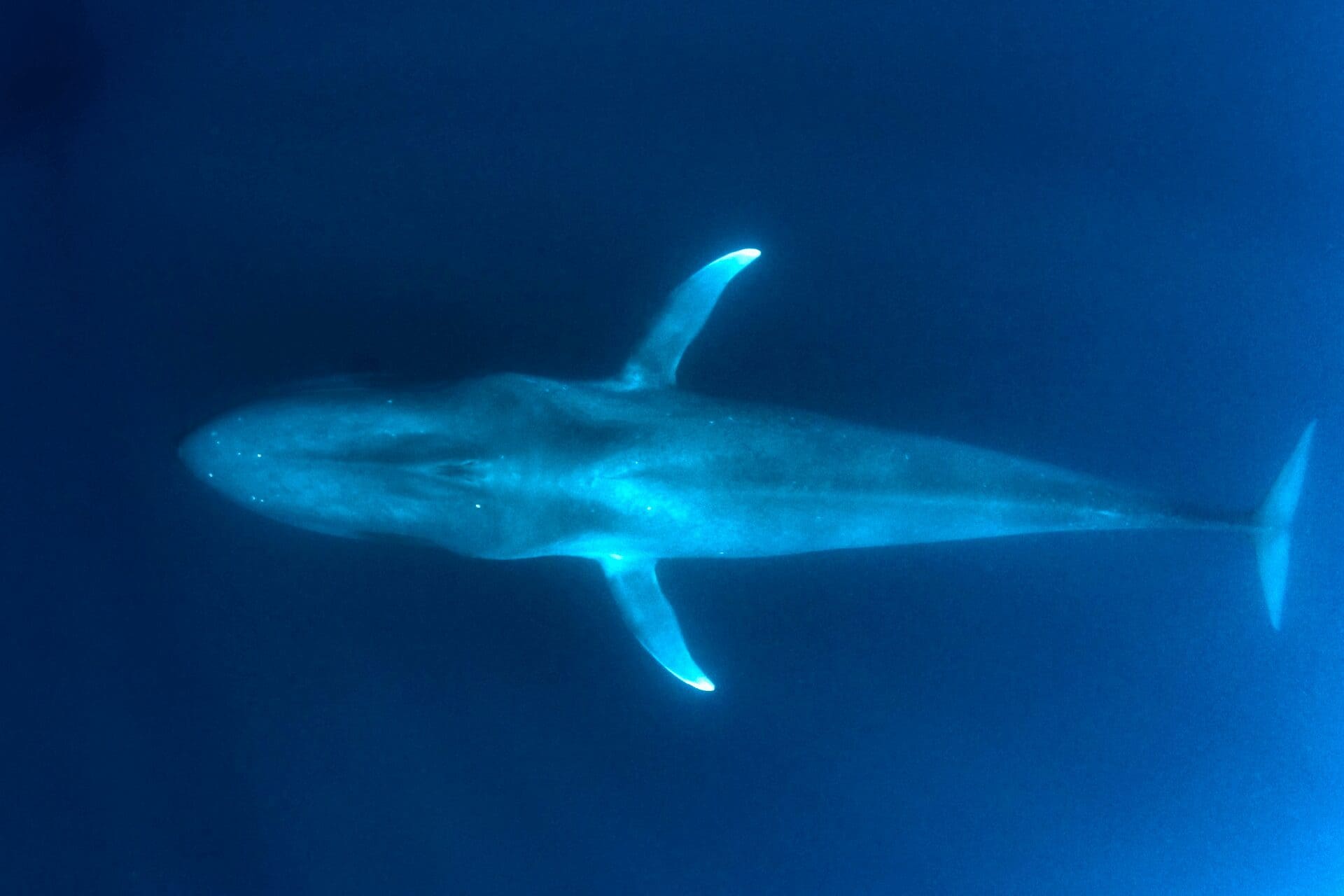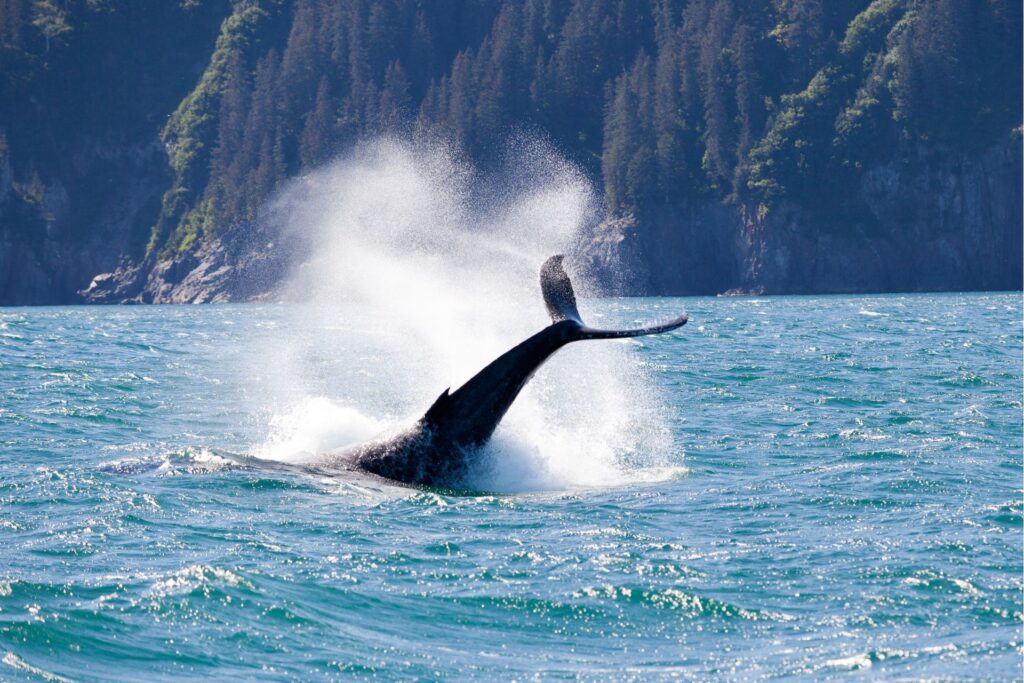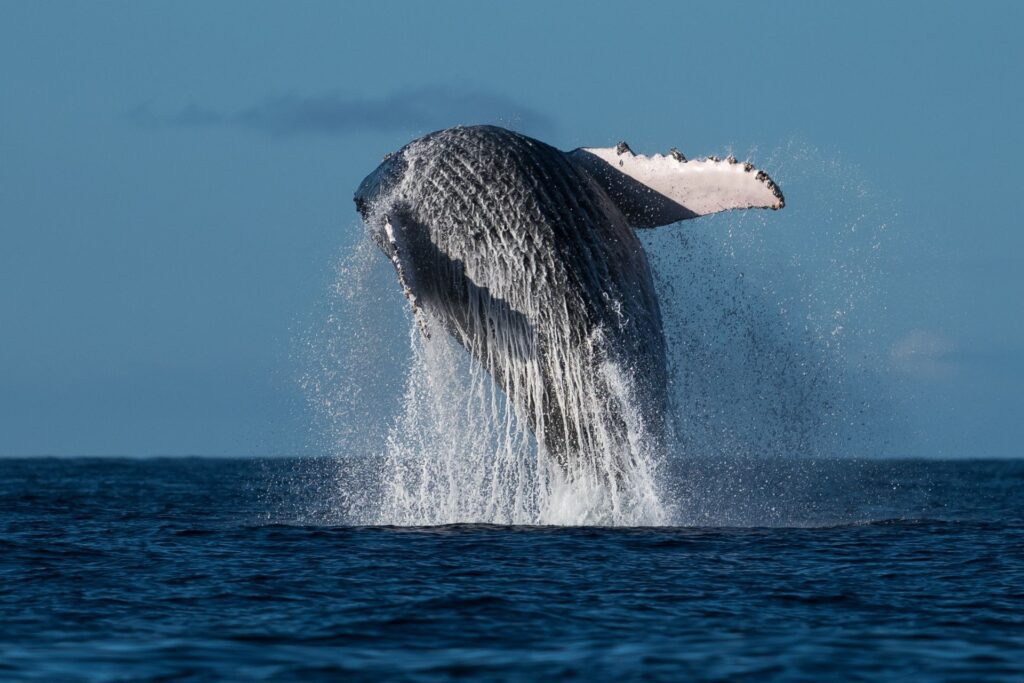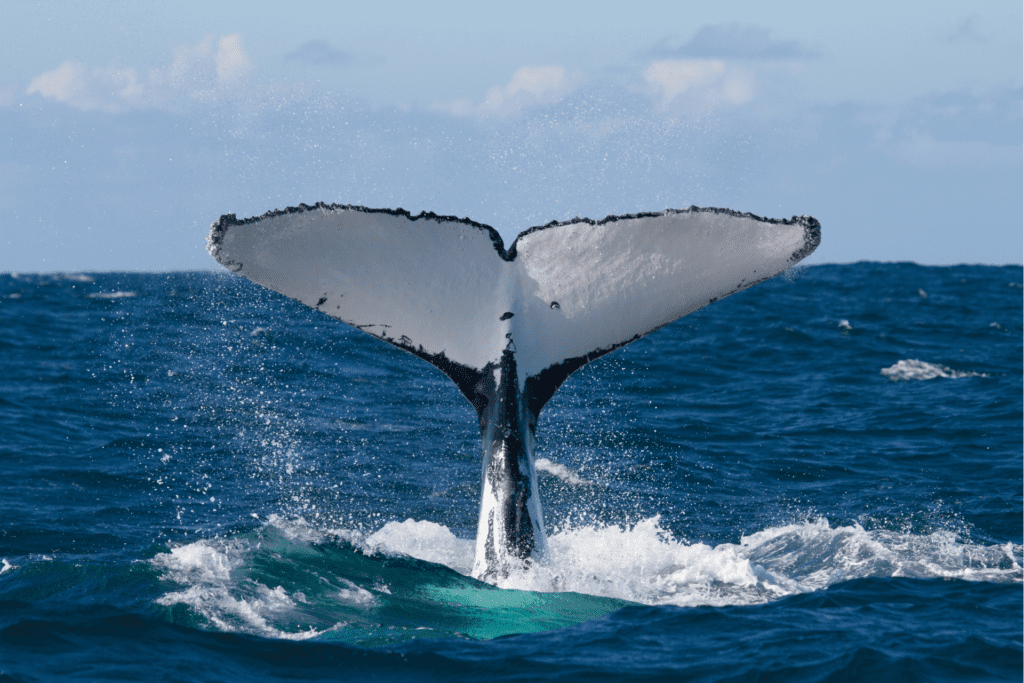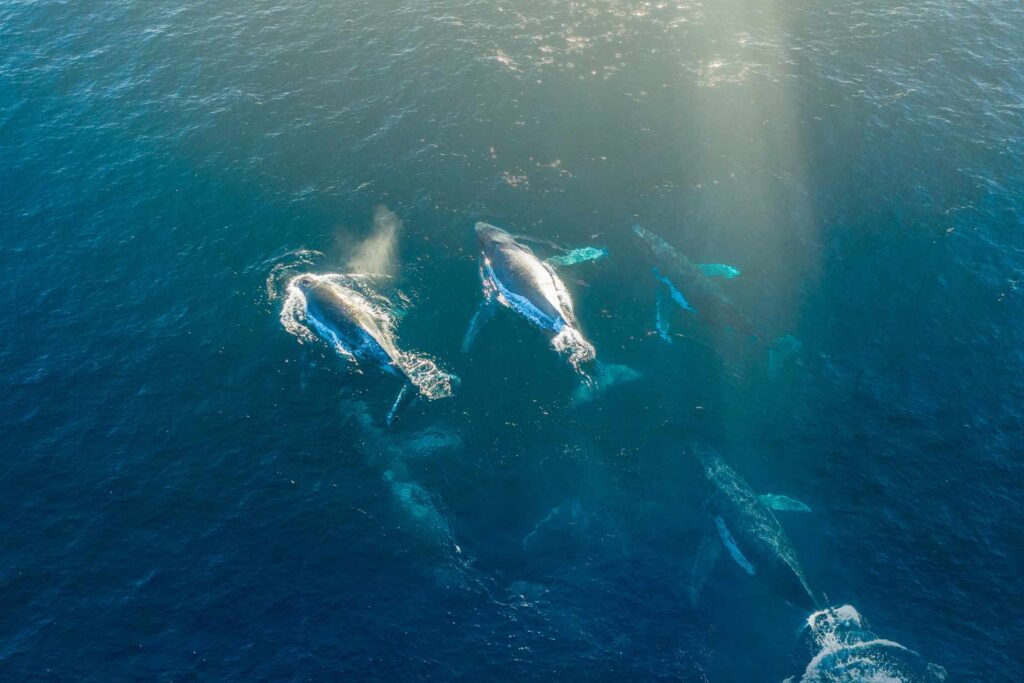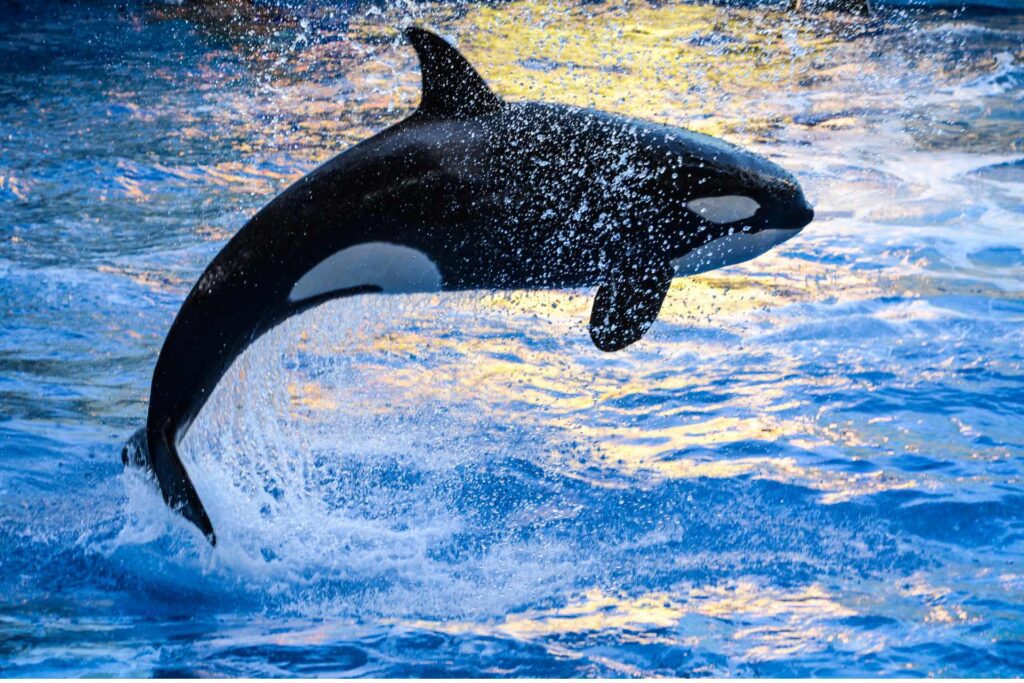Experience the Majesty of the Ocean: Discover the Thrills of Whale Watching
Your Ultimate Whale Watching Handbook.
Discover the secrets of the best locations, learn about whale behaviors, and get equipped with knowledge for a respectful and thrilling encounter with these ocean giants. Perfect for both seasoned watchers and first-time explorers, our guides promise to transform your experience into an unforgettable voyage of discovery.
Top Whale Watching Hotspots Around the World.
Explore the best spots globally for witnessing these oceanic giants.
Essential Gear for the Perfect Whale Watching Trip.
Essential equipment recommendations.
Meet the Majestic Inhabitants of the Deep.
Discover the fascinating world of different whale species.
Whale Conservation: Our Role and Responsibility.
Learn about efforts to protect the ocean.
Guides: Embark on a Whale of an Adventure
The majestic whales continue to captivate our hearts and minds through the vastness of the oceans. Their significance stretches beyond their enormous presence in the waters; they play a crucial role in the marine ecosystem and have become a worldwide symbol for wildlife conservation efforts.
As we conclude this journey, we must recognize that whale watching is more than just a spectacular experience. By choosing sustainable tourism practices and supporting conservation organizations, you take a stand for the health of our planet’s oceans and the future of whale populations.
Be Part of the Movement
To truly appreciate the beauty and significance of whales and other marine mammals, we must become ambassadors of the sea. This means always adhering to responsible whale watching guidelines and being vigilant of our impact on these sensitive habitats.
- Participate in whale-watching tours that prioritize the well-being of marine life.
- Support organizations dedicated to marine conservation and research.
- Educate others about the importance of whales and their contribution to the marine ecosystem.
- Advocate for policies and practices that protect marine environments.
No matter how small, each action propels us toward a sustainable future where we can continue to enjoy and learn from these extraordinary ambassadors of the ocean.
Take the Leap - Contribute to Conservation Today!
Ready to make a splash? Book your next whale watching adventure with a certified eco-friendly tour operator. Share the wonder with family and friends, and let the whispers of the deep inspire you to become a steward of the sea. Together, we can ensure that whale watching remains a story of harmony between humans and nature for generations to come.
Embark on an unforgettable journey, witness the magnificent dance of the whales, and play your part in their protection. Dive into the world of whale watching and become a voice for the ocean’s gentle giants.
Embarking on a whale watching adventure provides an unparalleled opportunity to witness the fascinating and intricate behaviors of these majestic giants of the ocean. Understanding their patterns and interactions enriches our appreciation of whales and emphasizes the importance of protecting these magnificent creatures.
Safety Considerations for Whale Watching
While adventure awaits, safety should never be compromised. Adhering to safety considerations is non-negotiable:
- Always follow the guidelines set by local authorities for boat handling and navigation to promote a safe environment for both whales and watchers.
- Maintain a respectful distance from the whales, both for your safety and to avoid causing the animals undue stress or harm.
- Prepare for changes in weather and sea conditions, ensuring that all safety gear is on board and easily accessible.
Destinations: Top Whale Watching Places Around the World
Whale watching is not just an activity; it’s a doorway to an astounding world of marine giants gliding in the vast blue. Each corner of the globe offers unique encounters with these majestic creatures. Pack your binoculars and set sail for the most unforgettable whale watching destinations on the planet.
Monterey Bay, California
Monterey Bay serves as a sanctuary for various whale species throughout the year. Observers can marvel at humpback whales, blue whales, and even killer whales as they migrate along the stunning Californian coast.
The Great Barrier Reef, Australia
Witness the gentle giants of the ocean in the crystal-clear waters of The Great Barrier Reef. Dwarf minke whales and humpback whales are sighted frequently, offering a spectacle as they navigate through the world’s largest coral reef system.
The Azores, Portugal
The enchanting archipelago of The Azores is one of the few places on Earth where you can encounter over 20 different species of cetaceans. The islands are renowned for their Sperm whale populations and the occasional thrilling sight of a breaching Blue whale.
The Gulf of St. Lawrence, Canada
In the expansive waters of The Gulf of St. Lawrence, whale watchers can experience the awe-inspiring presence of the colossal blue whale. The region is also a sanctuary for beluga whales and the acrobatic humpback whales, showcasing the diversity of Canada’s marine life.
The Antarctic Peninsula
The icy waters of The Antarctic Peninsula offer a mesmerizing whale watching experience amidst glaciers and icebergs. Expeditions in the Southern Ocean are graced by Minke whales, Humpback whales, and the elusive Orca, set against a breathtaking polar backdrop.
Each of these destinations presents a unique journey into the lives of whales, highlighting the need to cherish and protect these sentient beings and their habitats. Stunning imagery and videos from these locations do more than evoke wanderlust—they remind us of the beauty and fragility of ocean life.
Gear: Master Whale Watching - Techniques and Essential Equipment
Embark on an oceanic adventure with the right tools and know-how! Whale watching combines patience, respect for nature and a little bit of strategy. Stay prepared and enhance your experience with our guide on essential whale-watching techniques and the equipment you’ll need to make the most of your journey at sea.
Essential Equipment for Whale Watching
- Binoculars: A quality pair of binoculars is vital for spotting whales from a distance. Opt for waterproof and anti-fog models for clear views, regardless of the weather.
- Cameras: Capture the majestic beauty of whales with a camera featuring a good zoom lens. Remember, extra batteries and memory cards!
- Hydrophones: Submerge yourself in the acoustic world of whales with a hydrophone. This device allows you to listen to the fascinating sounds and vocalizations of these gentle giants underwater.
Techniques for Spotting and Tracking Whales
Whale watching requires more than just showing up. Use these techniques for a successful outing:
- Keep your eyes on the horizon and look for signs like water spouts (blow), breaching, or birds feeding.
- Stay patient and quiet, minimizing noise to avoid disturbing the whales or missing their subtle cues.
- Learn behavioral patterns such as feeding or migration habits to predict the best spots for whale encounters.
Whales: Discover Marine Mammal Species
Embark on an unforgettable journey into the world of whales, where the ocean’s depths reveal the majestic and diverse range of marine mammals that grace our waters. Whale watching tours offer a unique window into the lives of these incredible species. Below, we’ll introduce you to some of the most remarkable whales that you may encounter on your marine adventures.
Humpback Whales
Humpback whales are known for their spectacular breaching and complex songs. With long pectoral fins and a knobbly head, these gentle giants can grow up to 60 feet long and are often seen in groups, performing acrobatic displays that leave spectators in awe. An interesting fact: humpbacks engage in cooperative hunting by creating “bubble nets” to trap schools of fish.
Sperm Whales
The sperm whale is the largest of the toothed whales and has one of the most powerful echolocation abilities in the animal kingdom. Recognizable by their large, block-like heads, sperm whales can dive to incredible depths of over 2,000 meters to hunt squid. Their close-knit social structures and vocal communications have fascinated researchers and whale watchers alike.
Orcas (Killer Whales)
Orcas, also known as killer whales, are actually the largest members of the dolphin family. These black and white giants are highly intelligent and versatile predators, known for their complex social structures and hunting strategies. Each orca pod has its own distinct dialect of calls, forming a language that bonds the group together.
Gray Whales
Gray whales take part in one of the longest migrations of any mammal, traveling up to 12,000 miles round-trip from their Arctic feeding grounds to the warm lagoons of Mexico where they breed and give birth. Their mottled gray skin and the friendly behavior they exhibit near boats make them a favorite among whale watchers.
Blue Whales
Behold the blue whale: the largest animal to have ever existed on our planet. These colossal creatures can measure up to 100 feet in length and weigh as much as 200 tons. Blue whales are elegant swimmers despite their size and subsist almost exclusively on tiny krill. Spotting a blue whale is a rare treat, symbolizing the sheer wonder of the marine world.
- Physical characteristics: Blue whales have long, slender mottled blue-gray bodies and a broad, flat head.
- Behaviors: They are often seen gliding through the ocean alone or in pairs and are known for their loud, far-reaching calls.
- Unique attributes: Blue whales have heart sizes comparable to a small car, emphasizing their mammoth proportions.
These are just a few snapshots of the exquisite marine mammals you might encounter on a whale-watching tour. Every sighting is an opportunity to learn more about these magnificent creatures and the ocean they call home. So, keep your eyes peeled and your camera ready—you’re in for a treat that you’ll cherish for a lifetime.
Unlocking the Mysteries of Whale Behavior and Communication
Whale Behavior Patterns
Whales exhibit a range of behaviors that can leave spectators in awe. Notable among these is breaching, where whales propel themselves out of the water in a breathtaking display of power and grace. This spectacular behavior may serve as a form of communication, a method for dislodging parasites, or simply an expression of playfulness. Another behavior, tail slapping, involves the whale forcefully bringing its tail down onto the water’s surface, producing a loud smack. This action may signal irritation or serve as a warning to others. Finally, spyhopping is a curious behavior where whales vertically poke their heads out of the water for several minutes, possibly to get a better view of their surroundings above the water line.
Social Structures Among Whales
Whales are social creatures, with complex relationships and community dynamics. Depending on the species, they may travel in pods that range from a few individuals to complex groups with hundreds of whales. Social structures vary, with some species exhibiting tight-knit matriarchal family units, while others form bonds with unrelated individuals. The connections and interactions within these pods highlight the importance of social cohesion for survival in the vast ocean.
The Language of the Deep
The ability of whales to communicate across vast distances under the sea is one of nature’s most remarkable feats. Through a variety of vocalizations and songs, whales can express distress, navigate, locate food, and find mates. Songs are a particular attribute of some species, like the humpback whale, where males may produce these long, complex sequences of sound that can last for hours and are thought to play a role in mating rituals. The significance and rich complexity of whale songs and communication continue to be a compelling subject for research and a testament to the cognitive depths of these oceanic denizens.
- Breaching - Considered a form of communication or play
- Tail slapping - Possible sign of irritation or warning
- Spyhopping - Assessing the surroundings above water
- Vocalizations - Critical for navigation and locating food
- Whale songs - Complex sequences that may play a role in mating rituals
Discover the Giants of the Sea: Whale Facts and Biology
If you are mesmerized by the leviathans of the depths and are planning to embark on whale watching, understanding whale facts and biology can profoundly enrich your experience. Whales are not just fascinating creatures to observe from afar; they are complex animals with unique adaptations that enable them to thrive in the marine world.
Enthralling Anatomy and Life Cycles
The anatomy of whales is a testament to the wonders of evolution. Adapted perfectly to their aquatic lifestyles, their bodies are streamlined for efficient movement through water. Whales also have a life cycle that is as majestic as their size, including long gestation periods, profound mother-calf bonds, and lifespans that can exceed that of humans.
Feeding Habits and Ecological Significance
Whales play a crucial ecological role in our oceans. The feeding habits of whales vary from species to species—some filter tiny krill through great baleen plates, while others are adept hunters that can take down large marine mammals. In every case, their feeding strategies are a marvel to science, influencing everything from oceanic food webs to the overall health of marine environments.
Remarkable Abilities of Whales
- Echolocation: Some whale species possess the incredible ability of echolocation. They can send out sound waves that bounce back, providing them detailed information about their surroundings, prey, and each other—even in the murkiest waters.
- Deep Diving: Whales are renowned for their deep-diving prowess. With physiological adaptations like slowed heart rate and oxygen-rich muscles, some species can dive to great depths and stay submerged for more than an hour, flouting the limits of human endurance.
As you plan your whale watching journey, remember that the gentle giants you’ll be admiring are not just splendid to behold but are integral to the natural balance of the marine ecosystem. The more we learn about their biology and lifestyles, the better we can appreciate these magnificent creatures of the deep.
Arctic: Whale watching
Whale Watching: A Symbiosis of Adventure and Conservation
Whale watching has emerged not only as a thrilling exploration of the giants of the deep blue but also represents a cornerstone of ecotourism, a practice that intertwines the excitement of travel with the responsibility of conservation. This sustainable approach to tourism provides an alternative vision where exploration goes hand in hand with education and environmental stewardship.
Sustainable Tourism and Local Economies
The economic ripple effect of whale watching is profound. By inviting enthusiasts to witness these magnificent mammals in their natural habitats, local communities see a significant boost in revenue, which often translates to better conservation efforts and sustainable development. Whale watching, therefore, not only captivates the hearts of tourists but also supports the livelihoods of those living in coastal regions, creating a symbiotic relationship between humans and marine life.
Raising Awareness Through Ecotourism
Ecotourism is powerful; it educates the public about the importance of marine conservation and promotes the protection of biodiversity. Engaging with whales in the wild allows people to develop a personal connection with these creatures, which in turn fosters a sense of responsibility for their well-being and the health of our oceans. Whale watching, as a form of ecotourism, not only offers an extraordinary experience but also instills a message of preservation that resonates long after the journey home.
- Providing a direct encounter with marine wildlife, prompting a deeper understanding of ecological balance.
- Generating employment and fostering community development in local areas.
- Offering educational content that emphasizes the need for marine protection policies.
- Encouraging the adoption of eco-friendly practices that minimize the environmental footprint of tourism.
In summary, whale watching is much more than a leisure activity; it’s a vehicle for change that champions the essence of ecotourism. By embarking on such adventures, we contribute not just to the economy, but also to the invaluable process of conservation, ensuring that these oceanic titans can be enjoyed by generations to come.
Cultural and Historical Significance of Whales
The lore of whales spans across oceans and throughout time. These majestic creatures have breached the surface of our imagination, embedding themselves in the cultural fabric of societies worldwide. The respect and reverence for whales are evident not just in contemporary wildlife appreciation, but deeply rooted in history and tradition.
The Mythological Majesty of Whales
In many cultures, whales have been regarded as sacred beings. Their formidable size and mysterious oceanic journeys have inspired countless myths and legends. From the biblical story of Jonah and the whale to the Maori legends of New Zealand, in which whales are believed to be the descendants of the sea gods, these tales are a testament to the awe-inspiring nature of whales.
Indigenous Connections to Whales
Whaling has had a significant place in the subsistence and culture of indigenous communities. The Inuit and other native groups have traditions that span millennia, reflecting a deep understanding and respect for these ocean giants. Whales not only provided food and resources but also formed the cornerstone of spiritual beliefs and practices.
Whales in Symbolism
Whales have long been symbols of wisdom, guardianship, and strength in various cultures. Many societies view them as spiritual guides on life’s journey or as carriers of ancient knowledge. To encounter a whale, whether in reality or in a dream, is often considered a powerful omen.
- Folklore often casts whales as protectors of the ocean and sometimes even the world.
- In some Pacific cultures, whales are believed to be the reincarnation of esteemed ancestors, maintaining the link between the human and the aquatic world.
- The symbolism of the whale can also signify emotional depth, as these creatures are associated with both the vastness of the ocean and the breadth of human emotion.
In diving into the cultural and historical significance of whales, we find that their impact stretches far beyond the waves they navigate. Whales have not merely been passive giants roaming the seas; they have been central to narratives, spiritual beliefs, and even the identity of communities. As we continue to watch and appreciate these incredible animals, it’s important to acknowledge and respect their place in the human story—past, present, and future.
Joining the Giants: Ethical Whale Watching Practices
Embarking on a whale watching adventure brings with it a responsibility to safeguard the well-being of these majestic creatures. As visitors in their natural habitat, it’s crucial that we practice responsible whale watching to ensure minimal disturbance and a sustainable future for marine life. Below are key guidelines and regulations every tourist should follow to champion ethical whale watching.
Guidelines for Mindful Whale Encounters
- Respect their space: Maintain a safe and respectful distance from the whales. This ensures their natural behavior is not disrupted by our presence.
- Stay Quiet: Loud noises can startle whales. Remain as silent as possible to avoid any potential stress to these sensitive animals.
- Limited Time: Limit the duration of your whale watching to reduce cumulative impact. This helps prevent whales from becoming overly stressed due to prolonged human interaction.
Adherence to Local Whale Watching Regulations
It’s not just about manners; it’s the law. Various regions have specific whale watching regulations designed to protect marine life. Whether it’s staying 100 meters away from a whale or adhering to no-go zones, familiarize yourself with and respect these rules.
Educational Efforts toward Ethical Interactions
- Guided Tours: Whenever possible, choose guided tours offered by knowledgeable operators who prioritize whale safety over entertainment.
- Informative Materials: Engage with educational resources available at whale watching sites to better understand how to interact ethically with marine mammals.
- Conscious Observation: Be an observant and considerate guest. Recognize any signs of distress and adjust behaviors to avoid causing harm.
By embracing these practices, our awe-inspiring experiences with whales will not only be unforgettable but also reflective of a deep respect and commitment to preserving the delicate balance of marine ecosystems. Let’s watch with care and ensure whale watching remains a joy for generations to come.
The Threat to Giants: How Climate Change and Pollution Are Impacting Whale Watching
When embarking on the majestic journey of whale watching, few spectators may be fully aware of the silent threats lurking beneath the waves. Climate change and pollution have profound effects on whale populations, which in turn, affect the very nature of whale watching experiences around the globe.
Evaluating the Effects on Whale Populations
Climate change, along with human-induced factors, is leading to significant alterations in the marine environment. The repercussions of these changes have been harsh, leading to disruptions in reproductive rates, increased mortality, and altered behavior in marine mammals. Whales, as sentinel species, offer us a clear indication of the health of our marine ecosystems, warning us through their struggles of the dire state of their underwater realms.
Migration Patterns and Food Sources at Risk
Global warming is a pressing issue that is reshaping the landscape of our oceans. As temperatures rise, whale migration patterns are changing. Some populations are shifting their routes, while others face challenges in finding their traditional feeding grounds, which are essential for their survival. Their primary food sources, such as krill and small fish, are being affected too, with their numbers dwindling as the ocean temperatures rise and acidification increases.
The Overall Ecosystem Health
The cascade effect of these changes on the overall ecosystem health cannot be overstated. Whales play a crucial role in maintaining the delicate balance of marine life. Their presence affects the entire food chain, from the smallest plankton to the largest predators. Pollution, namely in the form of plastic waste and chemical run-offs, further poisons their natural habitats, compounding the challenges they face in a rapidly changing world.
Importance of Sustainable Solutions
To preserve the enchanting experience of whale watching for future generations, it is imperative to address these environmental threats head-on. This means advocating for stronger global initiatives to combat climate change, enforcing stricter pollution controls, and supporting conservation efforts that seek sustainable solutions. As individuals, we can contribute by minimizing our carbon footprints, choosing sustainable seafood, and promoting marine conservation.
- Climate action to minimize global warming effects
- Reduction in plastic use to decrease ocean pollution
- Supporting marine protected areas to safeguard key habitats
Our efforts, both collectively and individually, have the power to turn the tide for the gentle giants of the sea, ensuring that whale watching remains a testament to nature’s magnificence, rather than a memory of what once was.
Conservation Efforts: Sustaining the Giants of the Sea
As the gentle giants of the sea continue to fascinate us, their existence is imperilled by human impact. Conservation efforts are not just commendable; they are crucial for the survival of whale species and the health of our oceans. Several organizations and initiatives tirelessly work towards preserving and protecting these magnificent creatures and their natural habitats.
Ongoing Research and Initiatives
Researchers dedicate their lives to studying whale behavior, genetics, and migration patterns, providing invaluable insights into their health and the challenges they face. This research is often the backbone of conservation strategies, leading to more effective protection measures and policies.
- Whale-tagging programs help track their migratory routes, feeding habits, and social structures.
- Marine Protected Areas (MPAs) have been established to safeguard critical habitats from the threats of fishing, shipping, and industrial activities.
- International Whaling Commission (IWC) plays a vital role in the global moratorium on commercial whaling, protecting species on the brink of extinction.
The Importance of Whale Conservation
Whales are not only majestic creatures but also vital to marine ecosystems. As keystone species, they help regulate the ocean’s food chain and contribute to carbon sequestration through their deep-sea dives. Their conservation is not only an act of empathy but a necessary step to preserve the biodiversity that sustains life on Earth.
Conservation Challenges
However, conservationists face myriad challenges. Despite international agreements, whale hunting still exists, threatening several species with extinction. Pollution, such as plastic waste and chemical contaminants, endangers the health of whales, often leading to fatal outcomes. And habitat destruction, caused by climate change and human activities, disrupts vital breeding and feeding grounds, placing further stress on these creatures.
In our quest for ocean exploration and exploitation, we must prioritize the well-being of its original inhabitants. The conservation of whales is inextricably linked to our survival and the planet’s ecological balance. By supporting ongoing conservation efforts and increasing public awareness, we can hope to secure a future where whales continue to thrive in our oceans.

